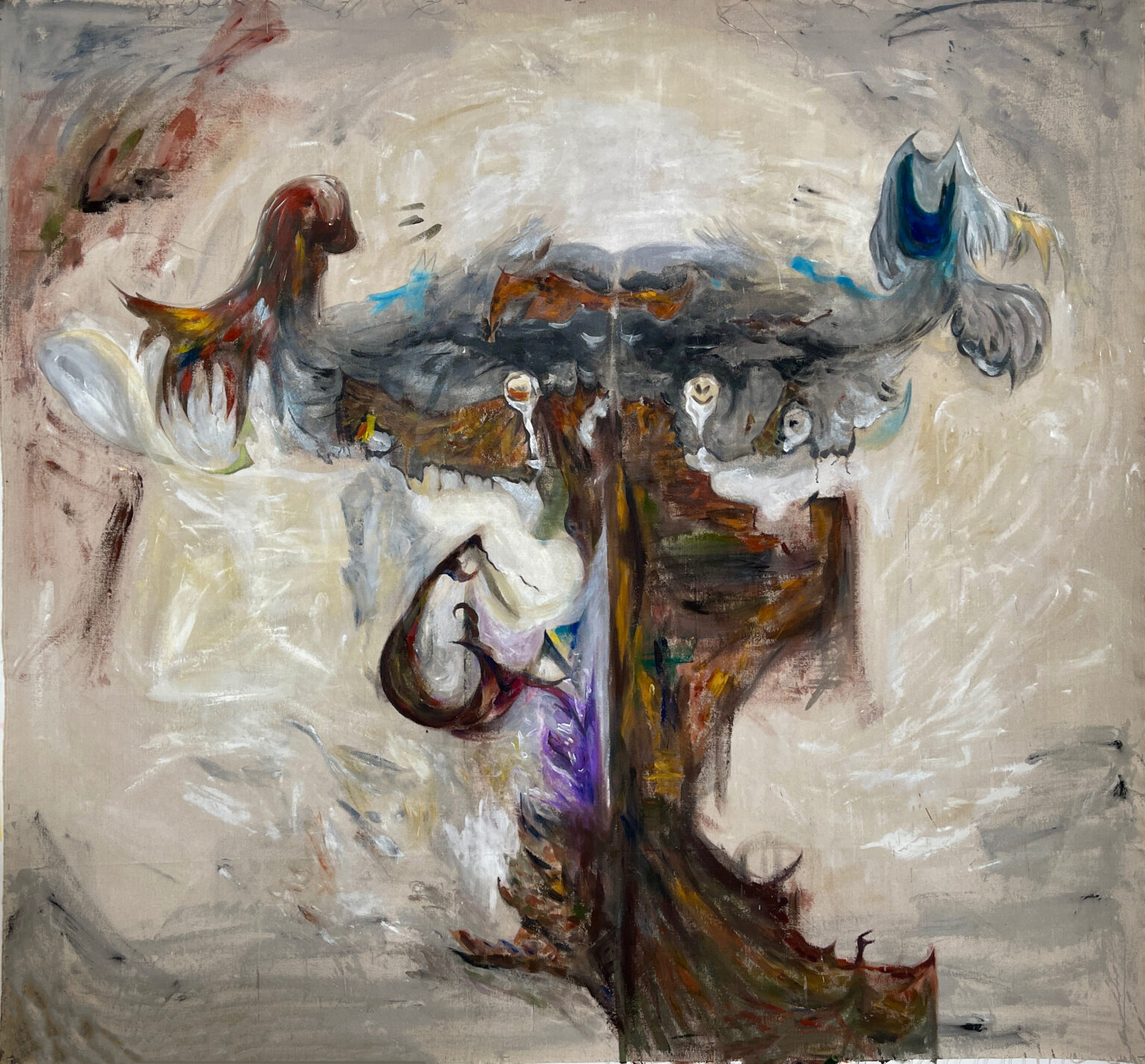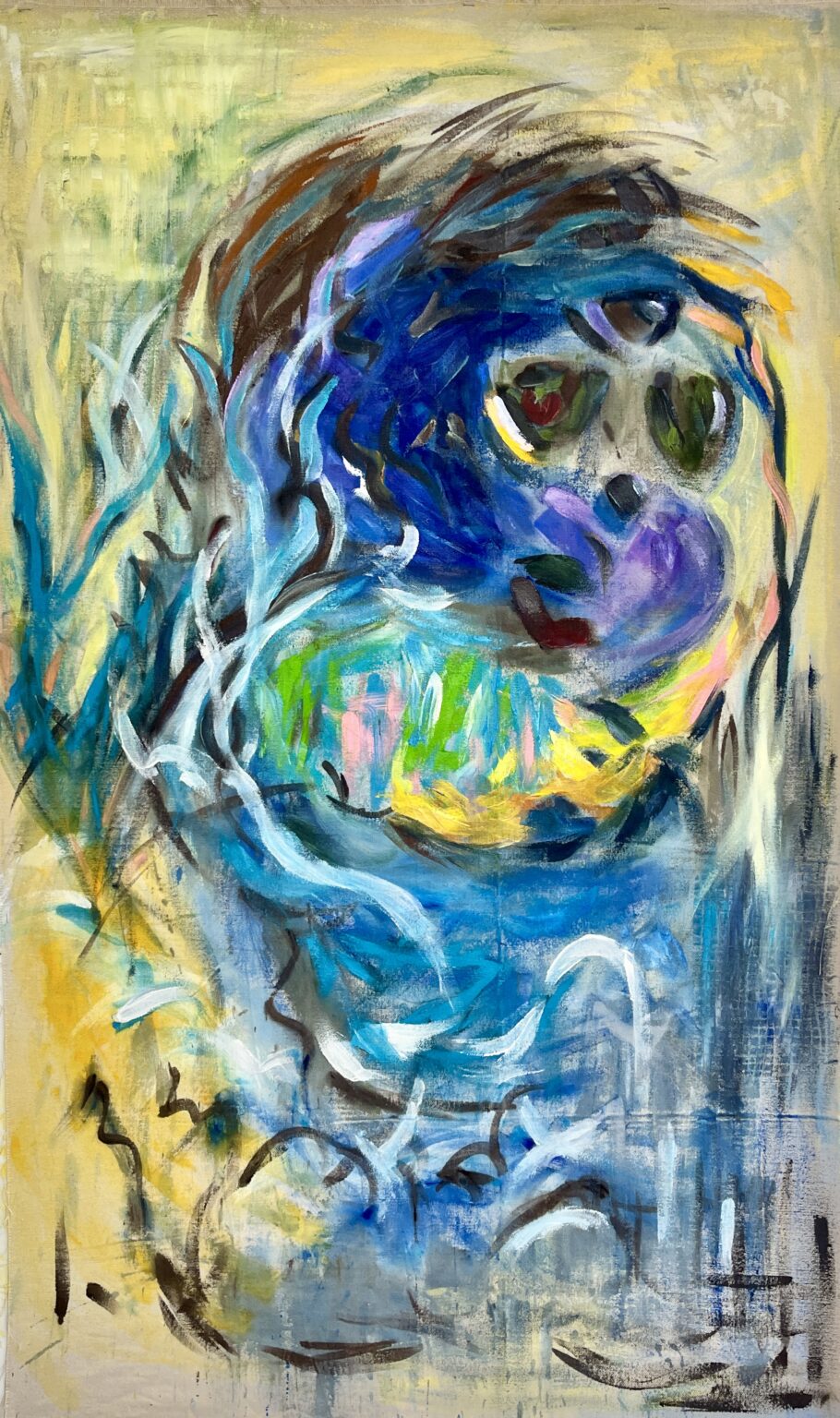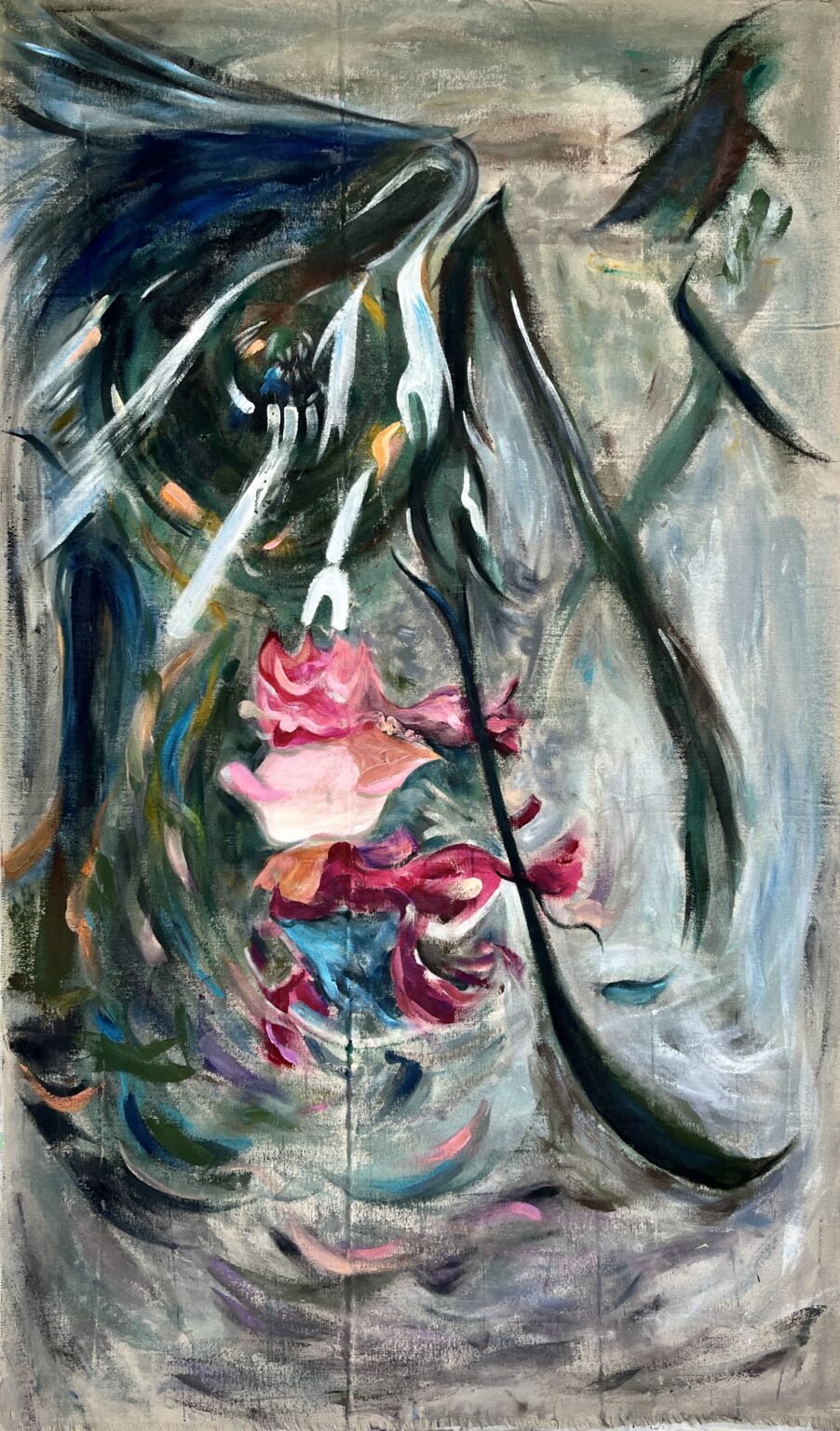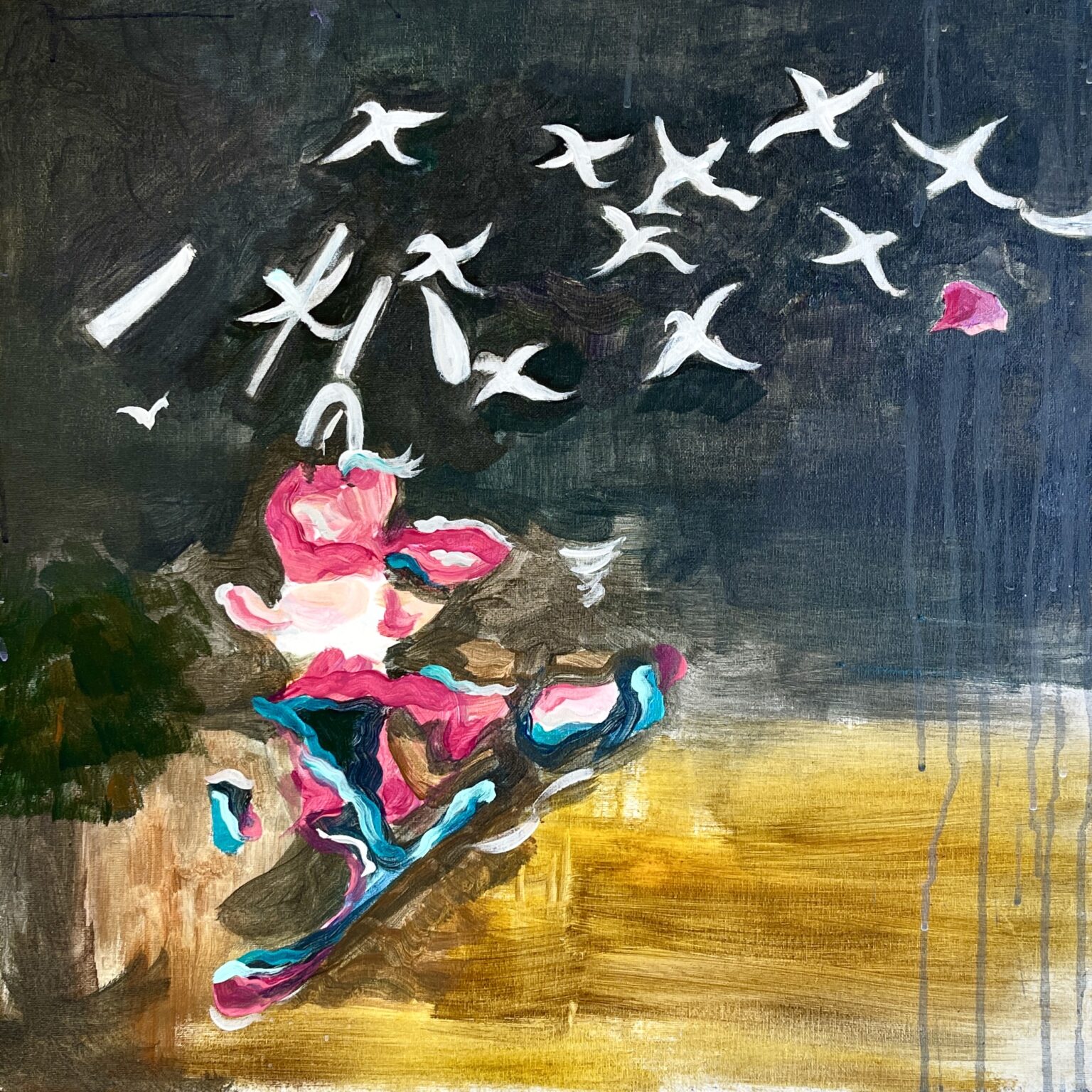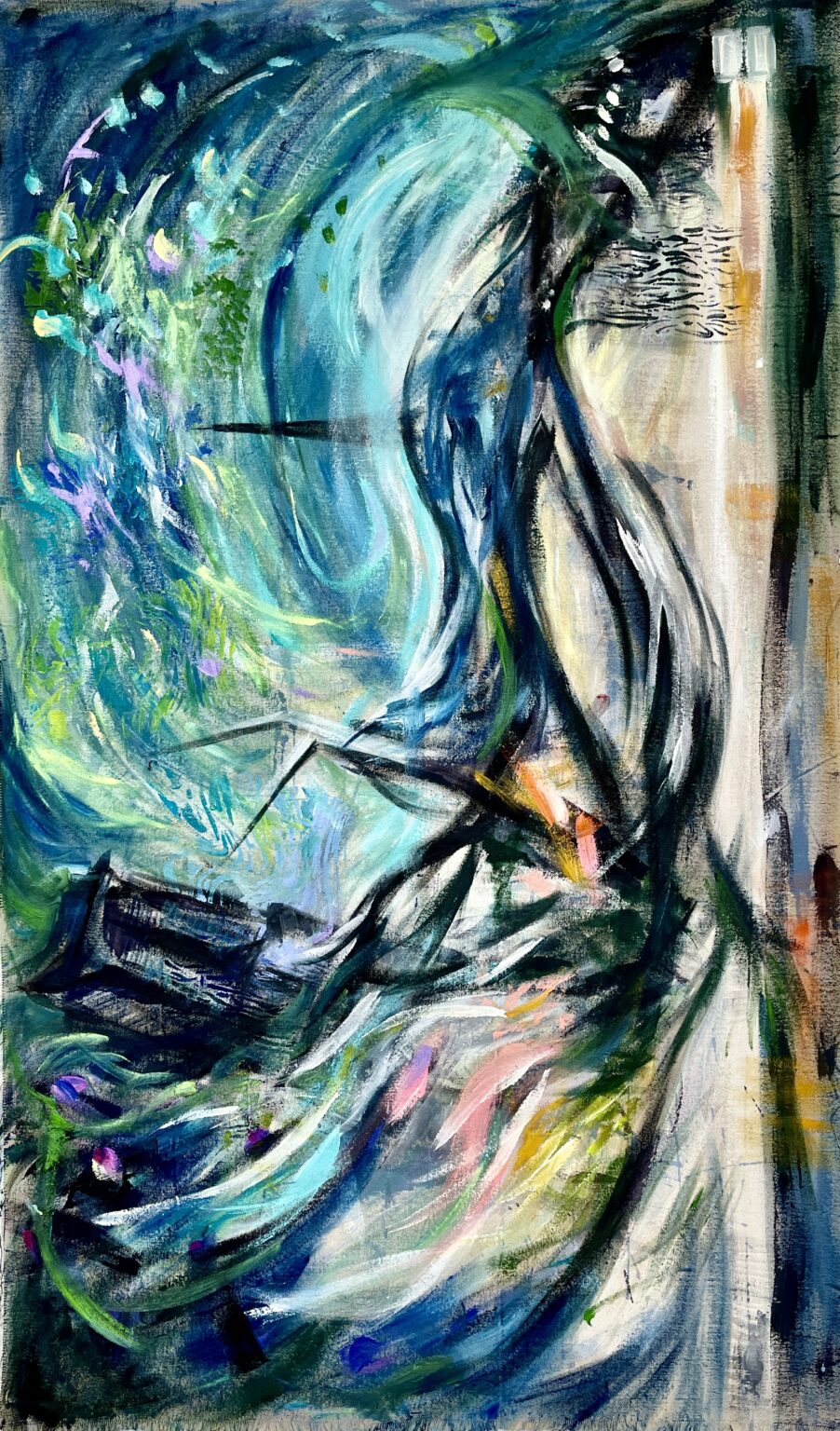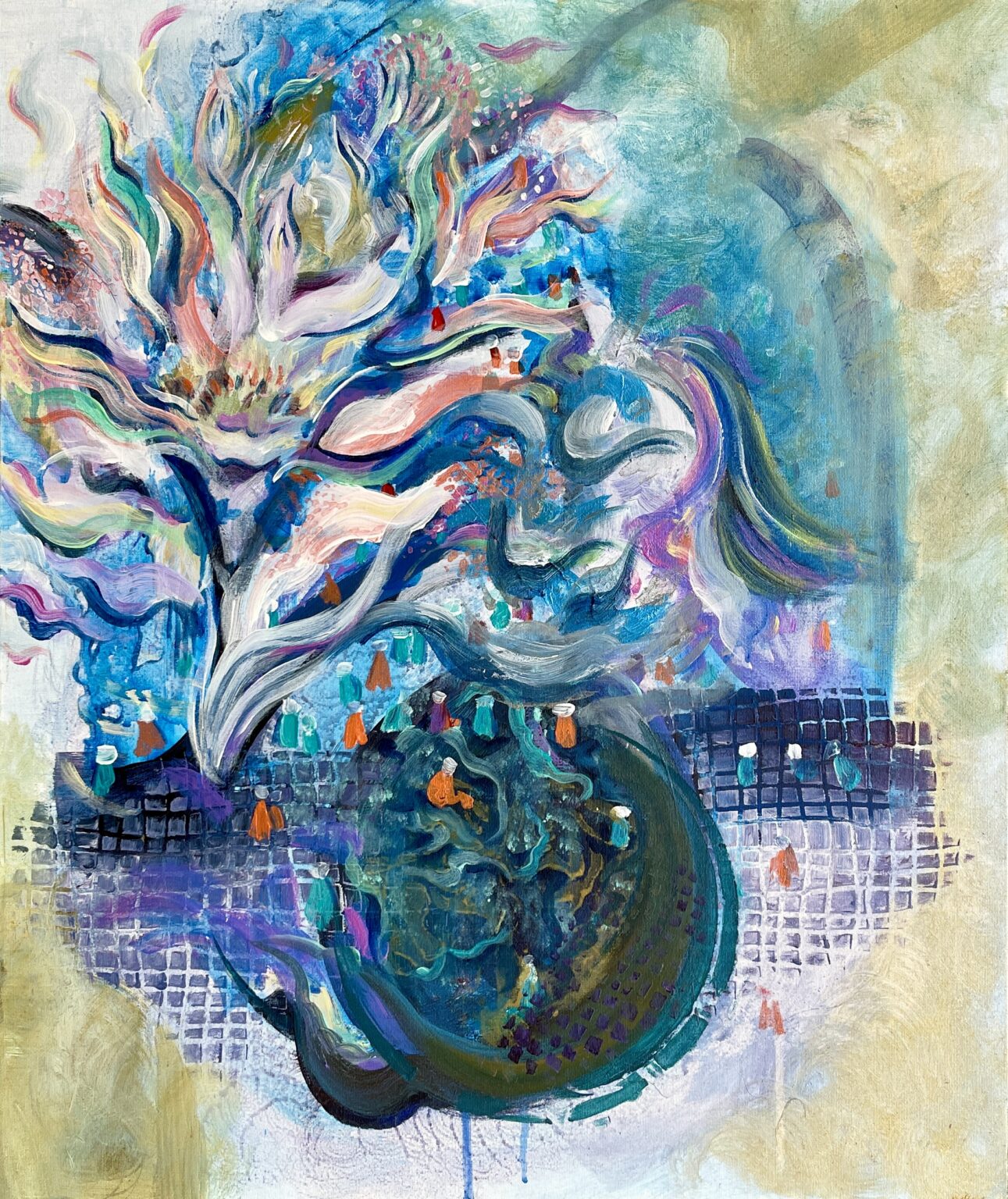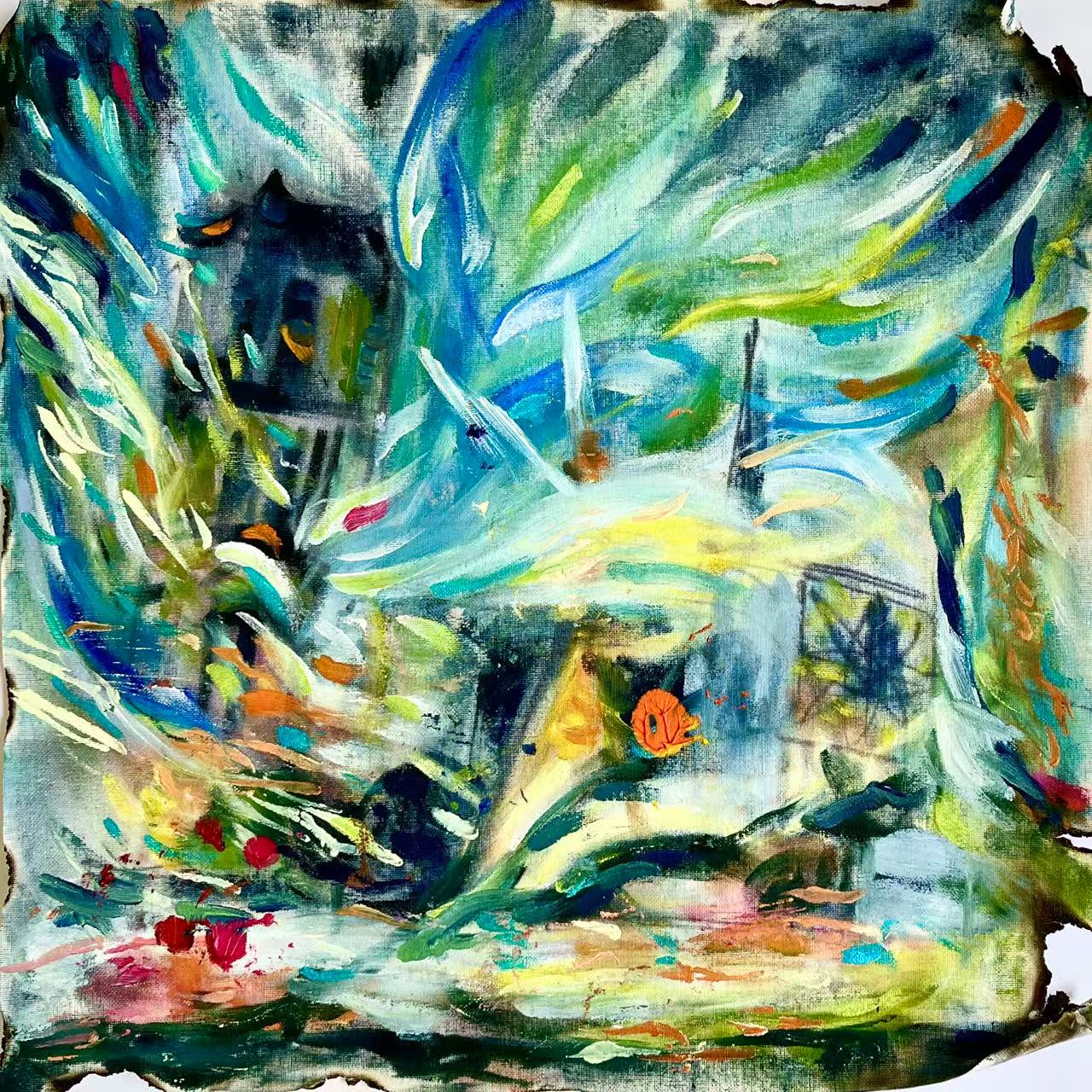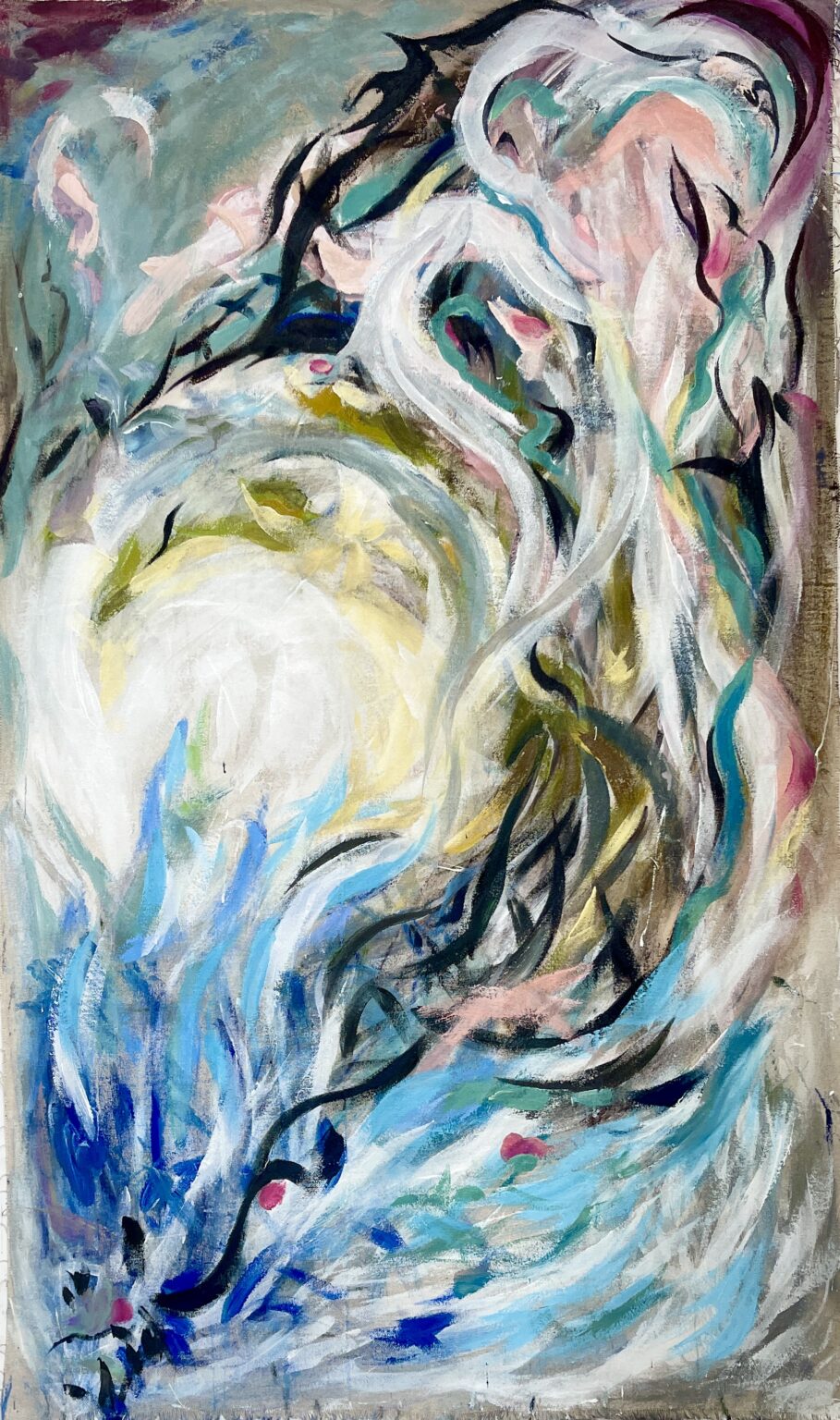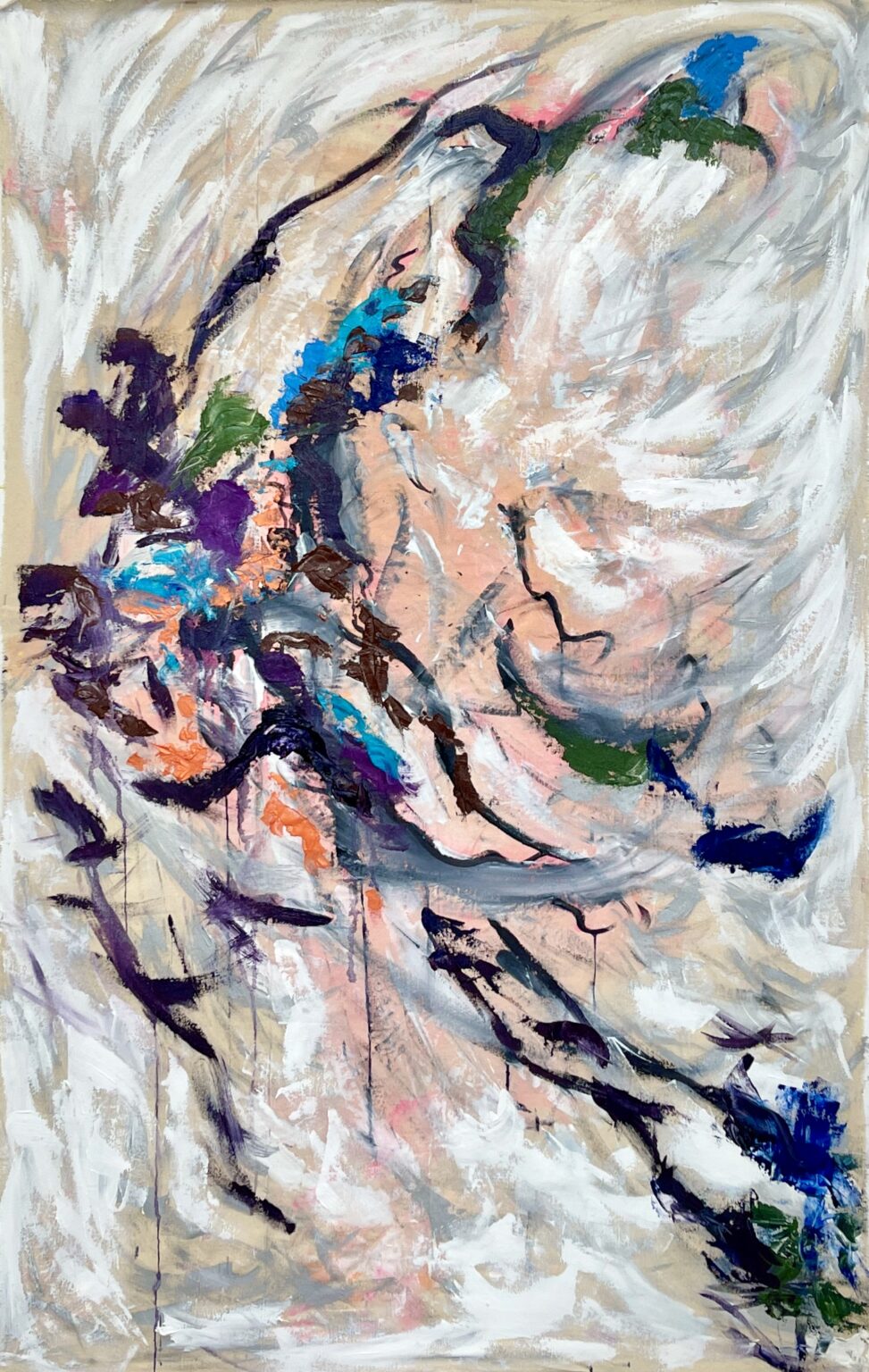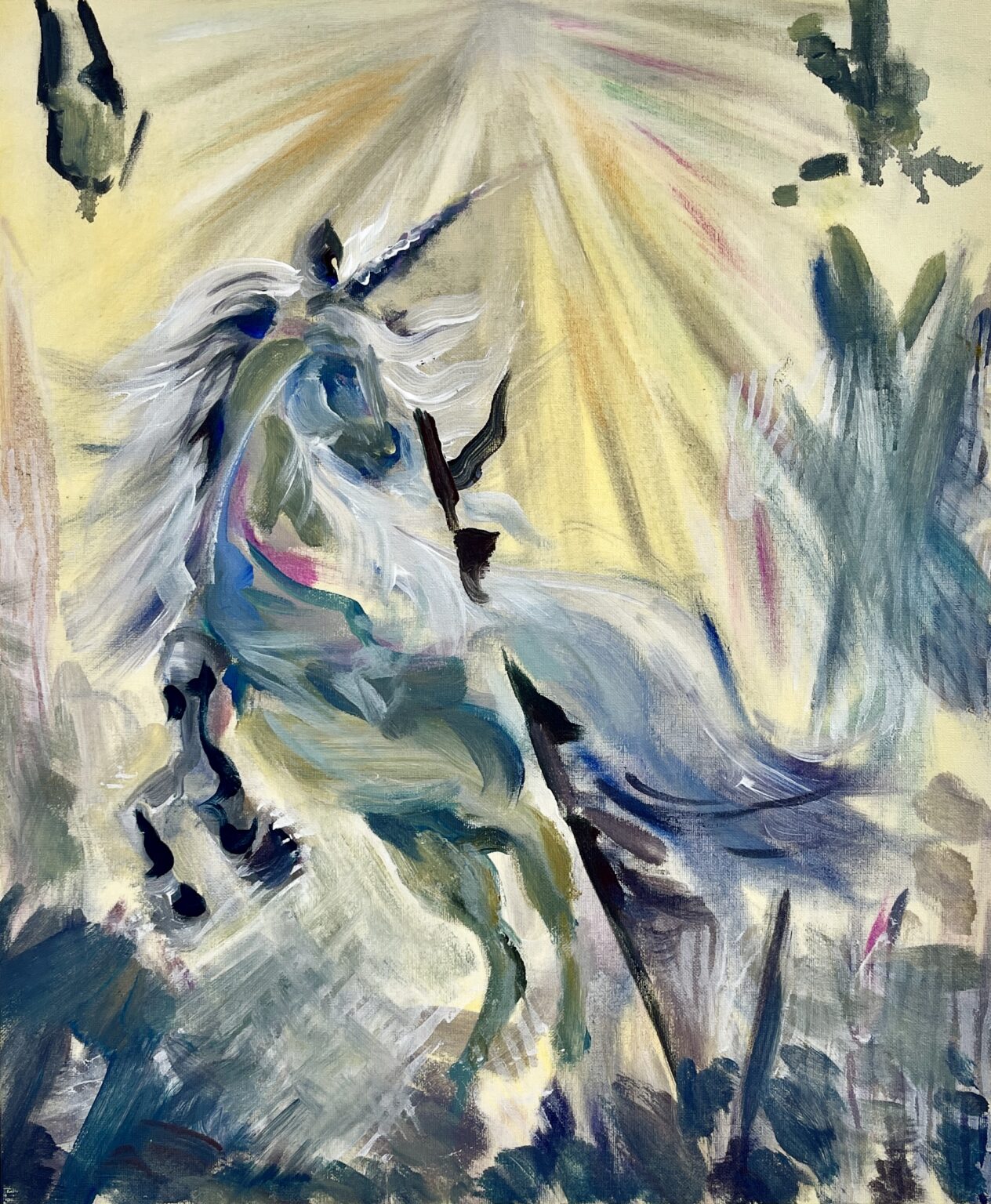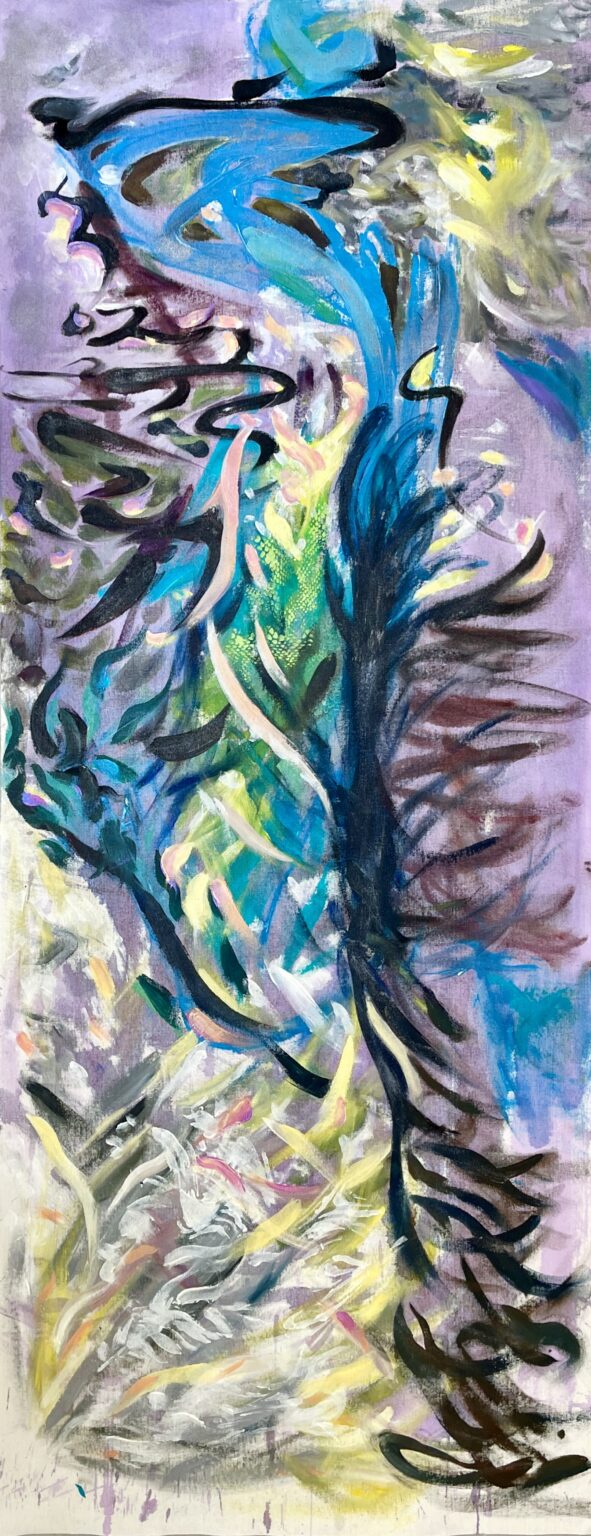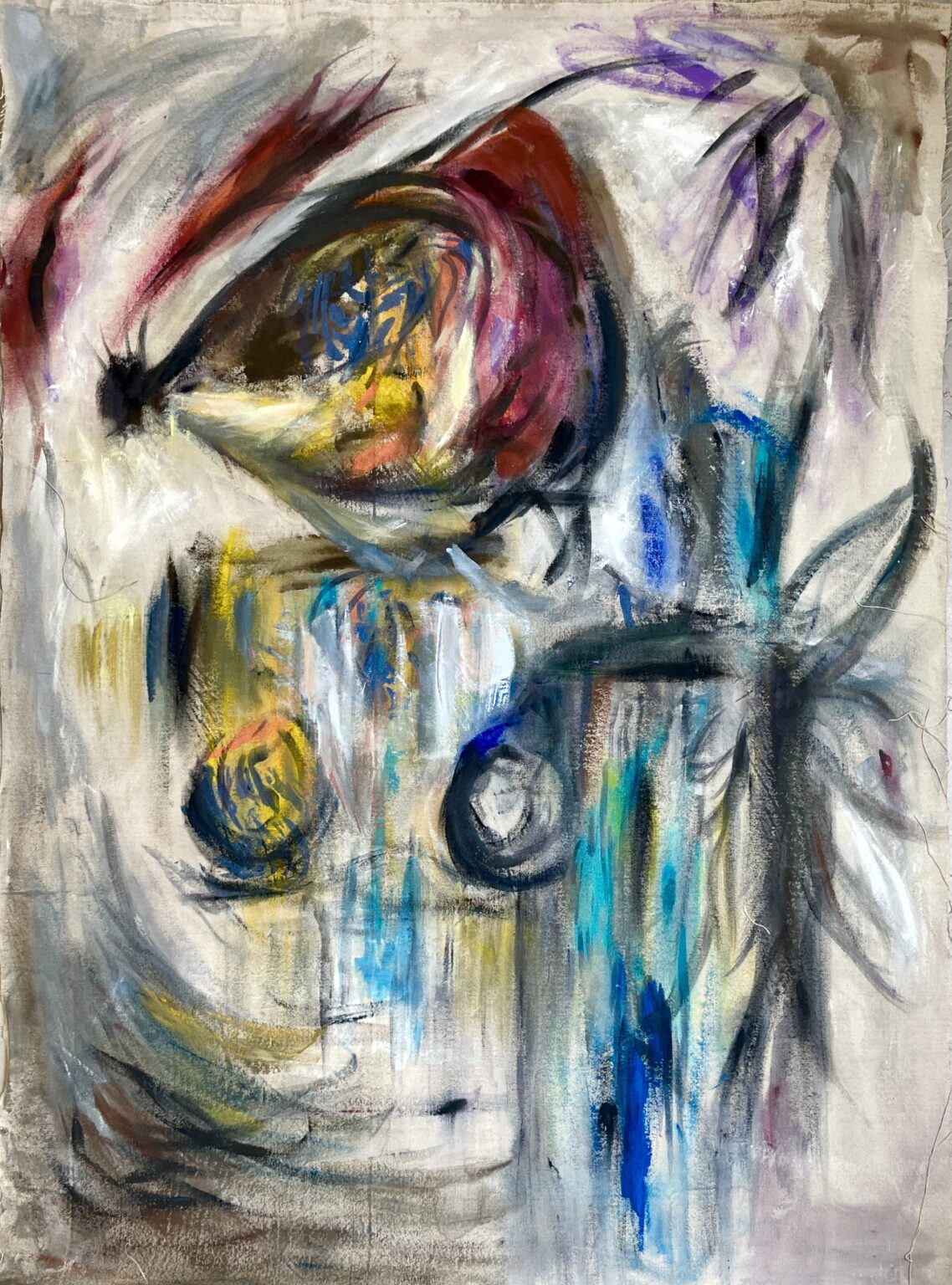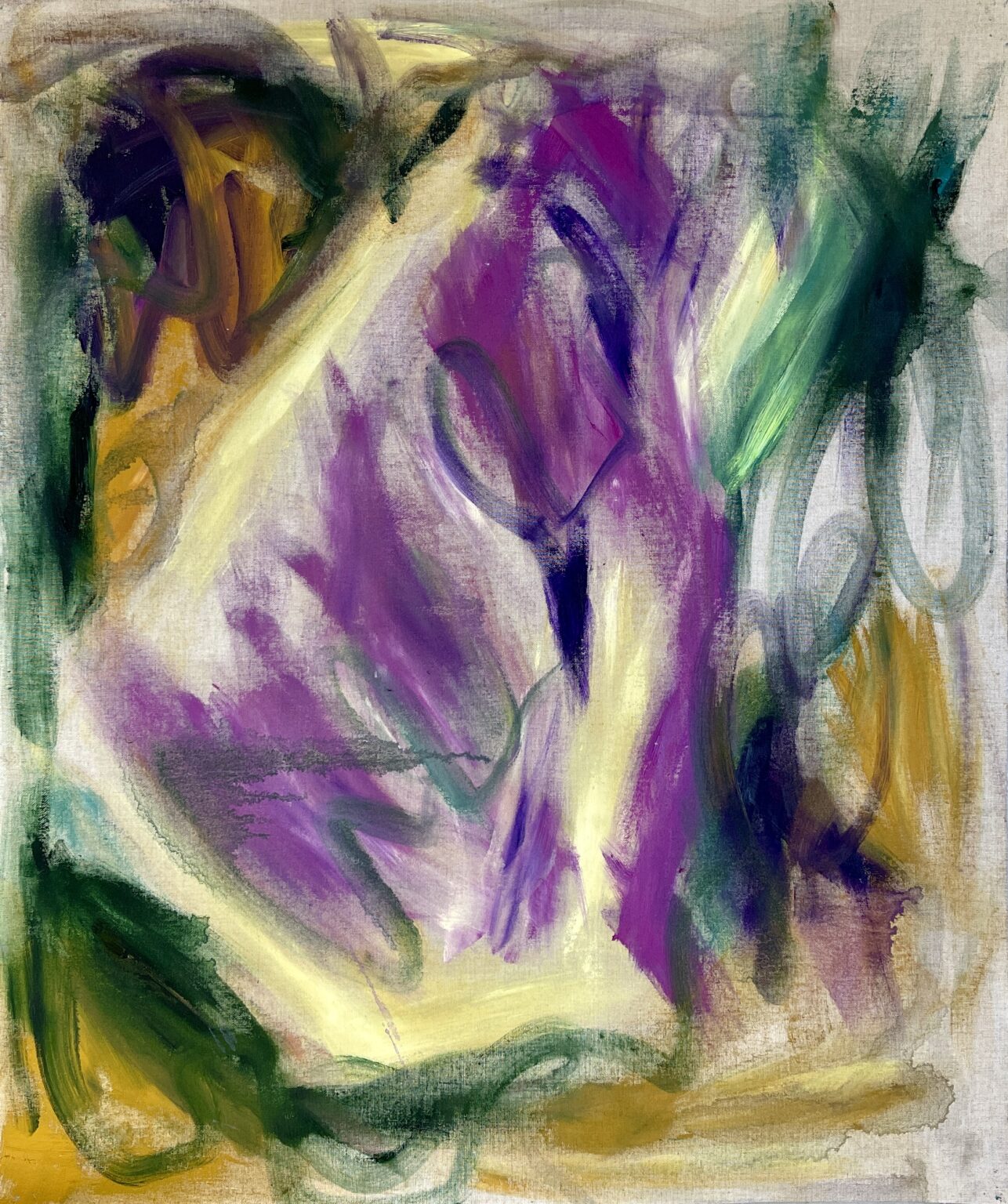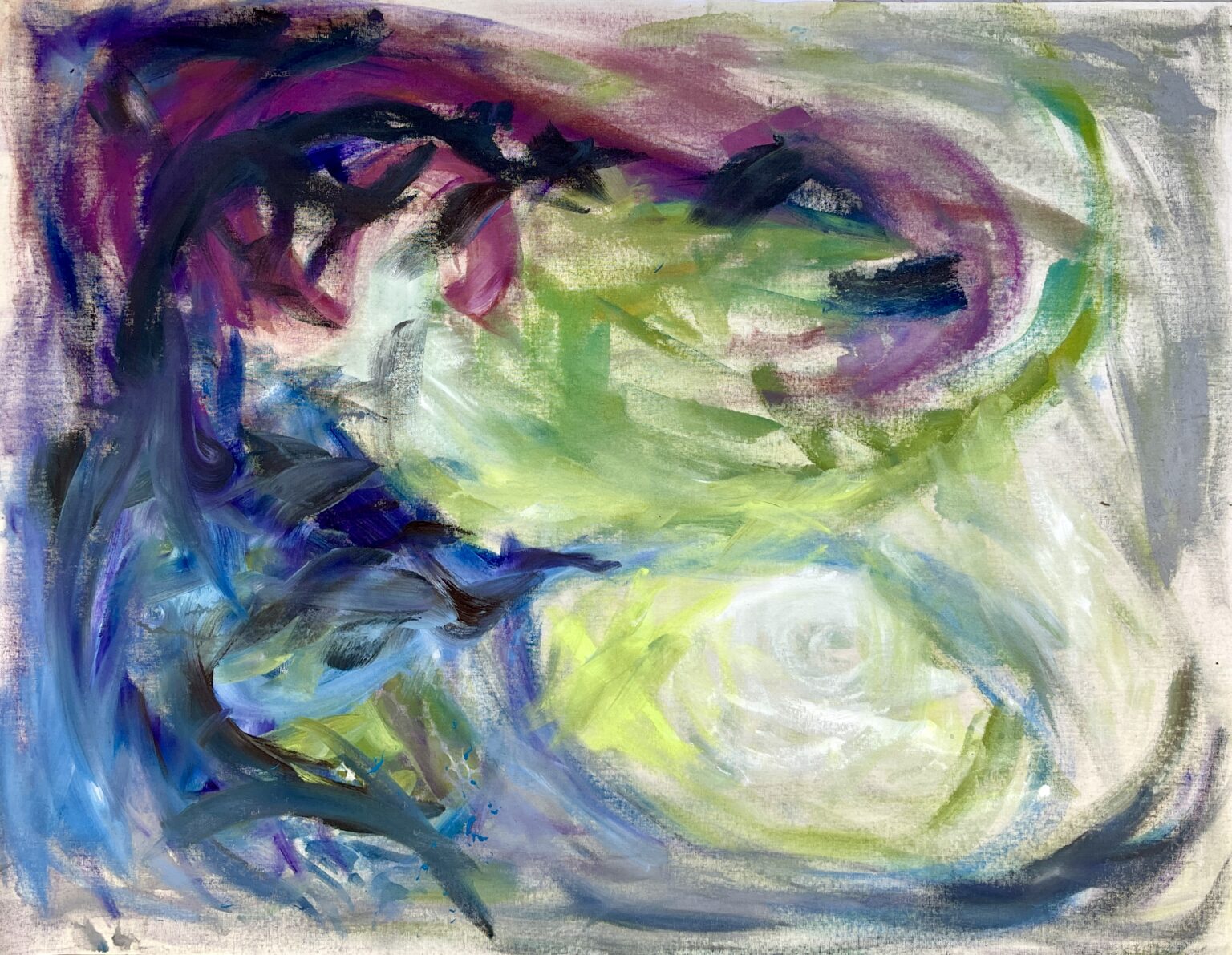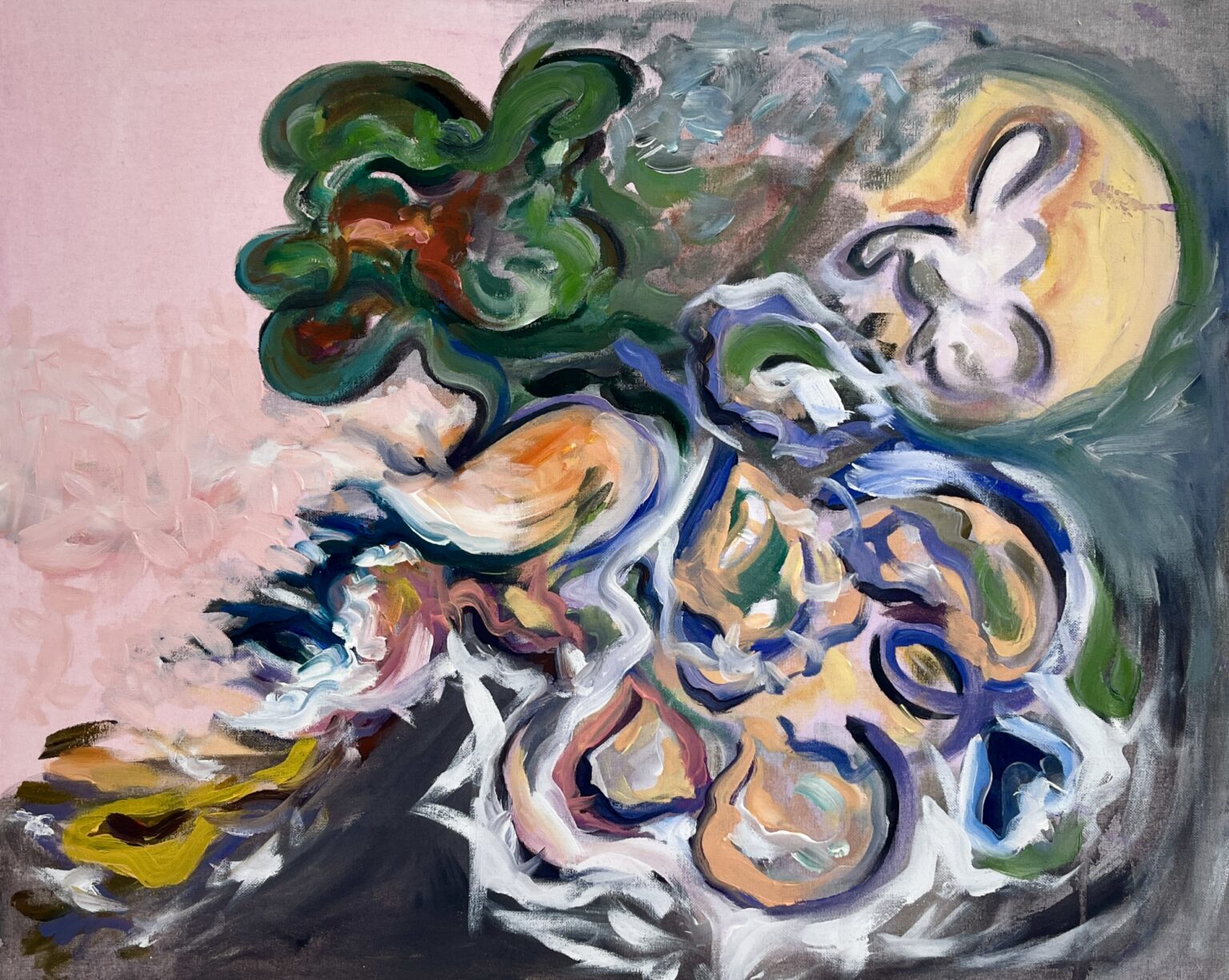MLitt Fine Art Practice School of Fine Art
Shuyu Ding
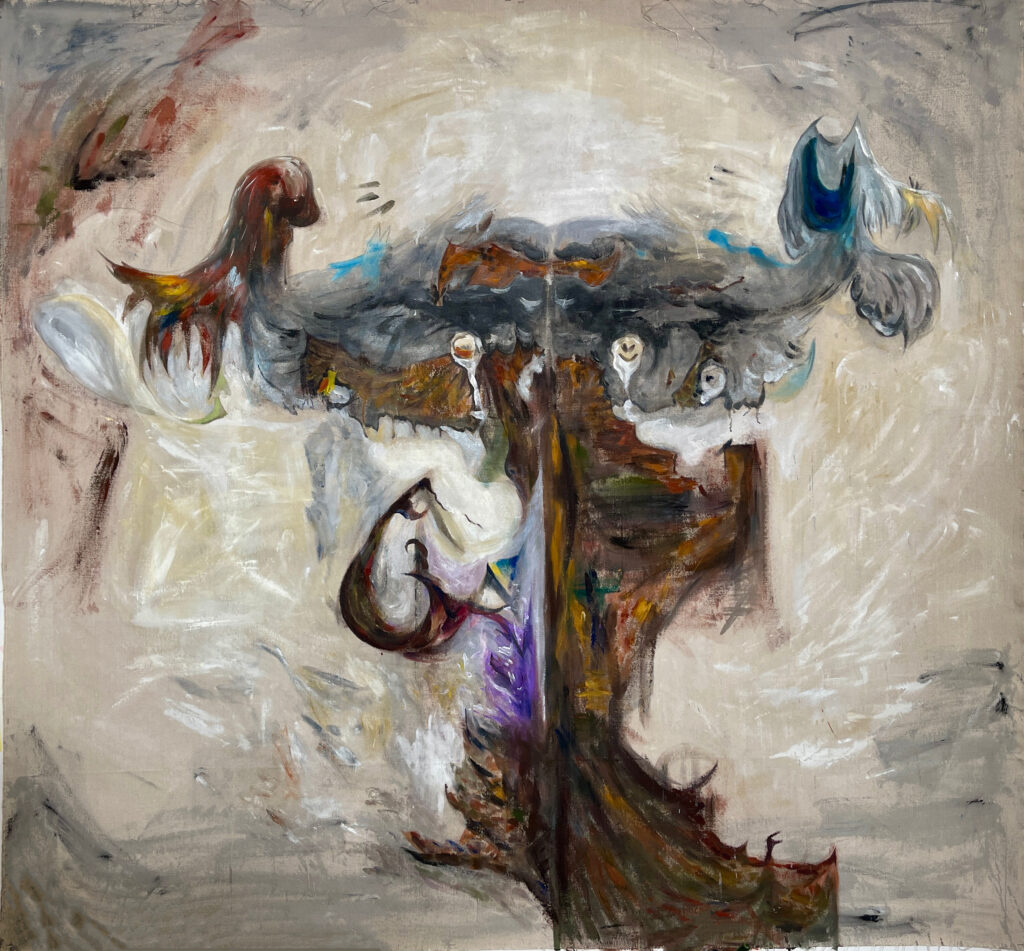
In Angel’s Fracture, painted on June, 2025, I layered transparent gesso over gray linen, its exposed fibers echoing Bernini’s broken-winged angel model at the Vatican—its eternal gesture persists despite ruin, mirroring our rehearsed digital smiles losing authentic weight. Rejecting framed canvases, I embrace raw, hand-cut linen, a protest akin to Bacon’s ruptured spaces where material narrates more than image. Ochre torsos, cobalt blues, and cadmium reds collide, inspired by Rothko’s emotional deconstruction, while wing-like tears in titanium white and ultramarine, per Bacon, preserve struggle’s vitality. Imperfection here defies wholeness, offering freedom in stray strokes over algorithmic perfection.

Broken Wings: Soaring Through Imperfection
As I brushed transparent gesso over the gray base of the linen, the exposed fibers reminded me of the preparatory model of an angel that Bernini and his assistants created for St. Peter’s Basilica at the Vatican Museums—the angel’s wings are now broken, yet within its unfinished steel frame remains the eternal gesture of beating. Perhaps this is the metaphor of the contemporary moment: we constantly rehearse smiles within algorithm-woven perfect filters, yet lose the weight of our feathers in the shadows of the digital realm.
Rescuing Pony: Anatomy of Survival
Rescuing Pony: Anatomy of Survival
Oil painting, Acrylic
100x170cm
“Rescuing Pony: Anatomy of Survival” confronts the brutal reality of Pony, a Bornean orangutan subjected to years of systemic sexual exploitation. Rather than aestheticizing suffering, the work presents survival through fractured, surging visual language. Oceanic blues, inspired by the Mayan “Blue Monkey” totem, swirl around her abstracted form, evoking both purification and drowning, while yellow and green suggest food grasped by spectral claws. The brushwork recalls de Kooning and Cecily Brown—fragmented yet alive—transforming Pony beyond victimhood. Layered textures resemble sedimented memory, resisting closure and echoing the nonlinear cycles of trauma, where pain and vitality persist in fragile coexistence.
The Blade of Redemption in Europa
“The Blade of Redemption in Europa” confronts the harrowing history of Pony, a female orangutan rescued in 2003 after years of systemic sexual exploitation—a stark emblem of human cruelty. In this work, I cast myself as a savior wielding a scythe, cutting through darkness to release her, while the perpetrators dissolve into monstrous forms within a misty forest. Somber gray-browns evoke captivity, disrupted by indigo and black arcs of violence and transformation. At the center, bright peach-pink flesh tones bloom as vitality and rebirth. Through forceful sweeps and delicate strokes, the painting embodies both rupture and healing, resilience and hope.
Renaissance au Clair de Lune
On a bone-chilling March night in 2025, I stood on the banks of the Seine, facing the fire-scarred Notre-Dame Cathedral for the first time. Its outer shell had been consumed by flames, leaving the steel skeleton bare, glinting cold silver beneath the crane’s work lights. Around me, friends lamented not being able to witness its pristine form. Yet I felt an uncommon serenity.
To me, Notre-Dame at this moment was at its most authentic—its wounds laid open, its structure exposed, its history breathing through the trauma. The French people and government were devoting immense effort to restoring it, and within the steel, dust, and shifting light, I saw not just the rebirth of a building, but a moment where time, beauty, and humanity converged.
Glasgow Dusk
Standing before Glasgow Dusk—my final work at the Glasgow School of Art—I see a milestone of growth and transformation. Completed for my 2025 graduation exhibition, it balances soft pinks, Naples yellow, and milky white against bold, angular strokes, reflecting both serenity and unrest. The coarse linen ground echoes Glasgow’s historic vitality, while a luminous yellow-white circle recalls a descending sun, resonating with regenerative ideas from Re/Design: Biomimicry. Surrounding washes of blue and teal evoke Helen Frankenthaler, while black and purple cuts suggest Anish Kapoor’s voids. Subtle pinks and corals, inspired by Julie Mehretu, bloom with fragile resilience and hope.
When the World Blossomed in My Eyes
My use of color is guided by intuition: off-white and pale pink form a soft base, evoking dawn or dusk, while black lines and patches inject tension as symbols of authority or chaos. Accents of blue and red burst with vitality, and green hints at the natural world, reinforcing themes of empathy. Brushwork shifts between forceful black strokes recalling Pollock and softer washes echoing Frankenthaler, with splashes of red and blue resonating with Cecily Brown’s passion. The asymmetrical composition, storm-like in its density, recalls Julie Mehretu’s abstractions, while the raw linen ground rejects traditional boundaries, embracing openness and flux.
Between Wind and Dream
Created in May 2025, this fully finished canvas was inspired by a Jellycat unicorn plush gifted by a close friend. As a Sagittarius, I connect deeply with the unicorn’s symbolism of freedom, purity, and imagination. In earlier works, it appeared as a spiritual refuge; later, it evolved into Pegasus, embodying unrestrained flight and liberation. This painting extends that trajectory while engaging with female artists’ explorations of myth, bodily freedom, and transcendence. Its turquoise body glows within halos of yellow and white, while swift brushstrokes animate the mane—gestures recalling Joan Mitchell’s expressive energy and embrace of chance.
Coiled Realms
Coiled Realms (2025) was inspired by a serendipitous encounter with a female sculpture by the River Lagan in Belfast, whose circular ring evoked both cosmic cycles and the sea goddess Mazu. Translating this into paint, I worked with gestural sweeps of aqua and lake blue, echoing river currents and sacred femininity, layered with bursts of lime, coral pink, and sharp black to create tension. A lavender ground builds atmospheric space, recalling Amy Sillman, while fragmented vertical strokes suggest a goddess-like body. Influenced by Joan Mitchell and Cecily Brown, the painting embodies metamorphosis, where intuition, energy, and abstraction converge.

